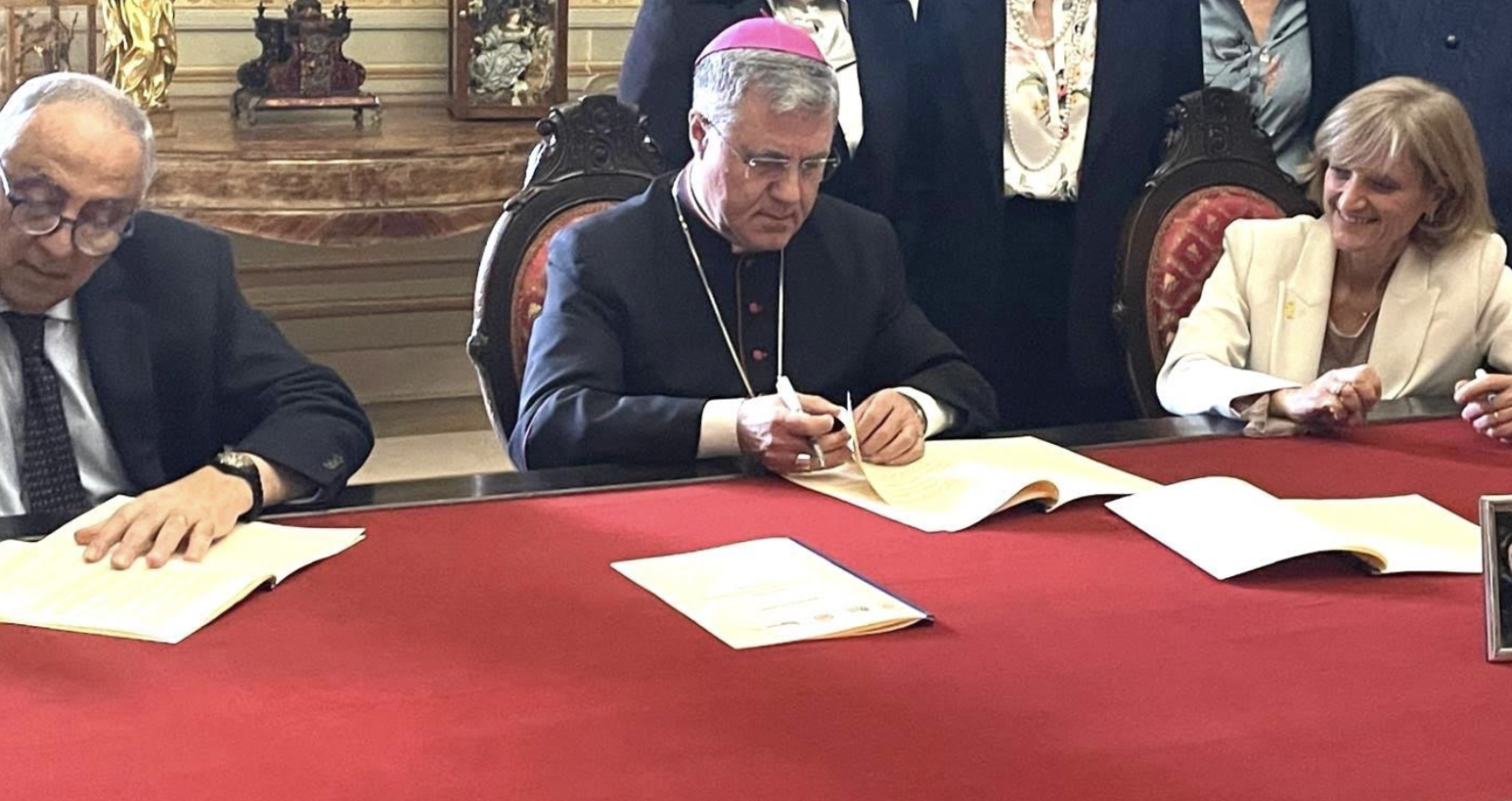PALERMO – Former oratory becomes synagogue

In 2017, the Archdiocese of Palermo’s decision to grant the free use of an ecclesiastical property to establish a synagogue made headlines worldwide. The New York Times captured the moment with the headline: “500 Years After Expulsion, Sicily’s Jews Reclaim a Lost History,” underscoring the symbolic weight of this gesture more than five centuries after the expulsion of Jews from the island.
Now, a new agreement signed in the Sicilian capital breathes fresh life into the initiative to transform the former Oratory of Santa Maria del Sabato into a Jewish place of worship and life. The document stipulates that the city of Palermo will cover all restoration costs, as outlined in the original accord. This breakthrough was made possible through a protocol signed by Palermo’s mayor, Roberto Lagalla; Archbishop Corrado Lorefice; Noemi Di Segni, president of the Union of Italian Jewish Communities (UCEI); and Lydia Schapirer, president of the Naples Jewish Community.
“We are very pleased,” said Di Segni. “For a long time, this ‘gift’ remained in a limbo, awaiting the means to begin the restoration. This is now possible thanks to the city’s intervention. In collaboration with the Italian rabbinate, we aim to make this space not only a place of worship but also a hub for Jewish culture—a vital resource this city deserves. We must remember that culture fosters coexistence and dialogue.”
A tribute to Evelyne Aouate
Di Segni dedicated the day to Evelyne Aouate, founder of the Sicilian Institute of Jewish Studies and representative of the Naples Jewish Community in Palermo until her passing in 2022. The institute itself will also find a home within the synagogue’s walls. “Evelyne was the driving force behind all of this, weaving crucial connections,” acknowledged Di Segni.
Giulio Disegni, UCEI vice president said that this project is especially significant, “as the history of Southern Italy’s Jews is often one of synagogues turned into churches. Here, we see a church becoming a synagogue in a district that was once the city’s Jewish quarter.” He also praised Mayor Lagalla for his commitment to preserving Jewish memory, recalling that as rector of the University of Palermo, Lagalla oversaw the installation of a plaque at Palazzo Steri to honor Jewish professors expelled by Fascist laws in 1938, including Emilio Segrè, who won the Nobel Prize in Physics in 1959.
a.s.
